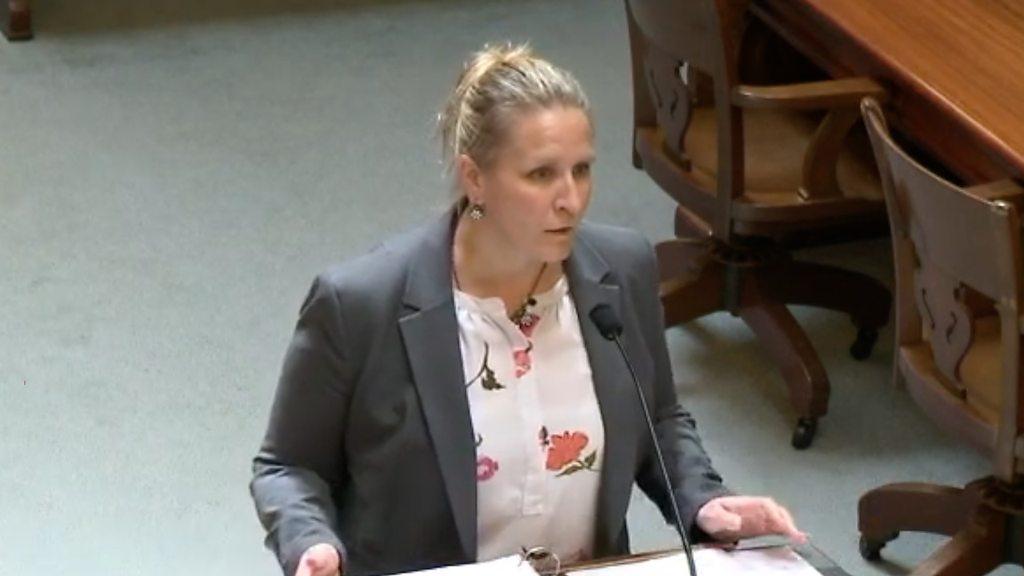US moves to abolish child migrant custody limits
- Published
Acting Homeland Security Secretary Kevin McAleenan defends the government's new migrant detention rule
Migrant families who cross the southern border of the US illegally could be detained indefinitely under a new regulation announced by the Trump administration.
It replaces an agreement that set a limit on how long the government could hold migrant children in custody.
The move, announced by Acting Homeland Security Secretary Kevin McAleenan, is due to come into effect in 60 days.
Mexico has expressed concern and said it would consider legal action.
The Mexican foreign ministry said the detention of children and adolescents "could be prolonged indefinitely, given the continuing delay in attending to migration cases".
Other legal challenges are also expected.
Why is this happening?
Homeland security officials believe that time limits on the detentions of migrant families have driven the surge of Central Americans crossing the border into the US this year.
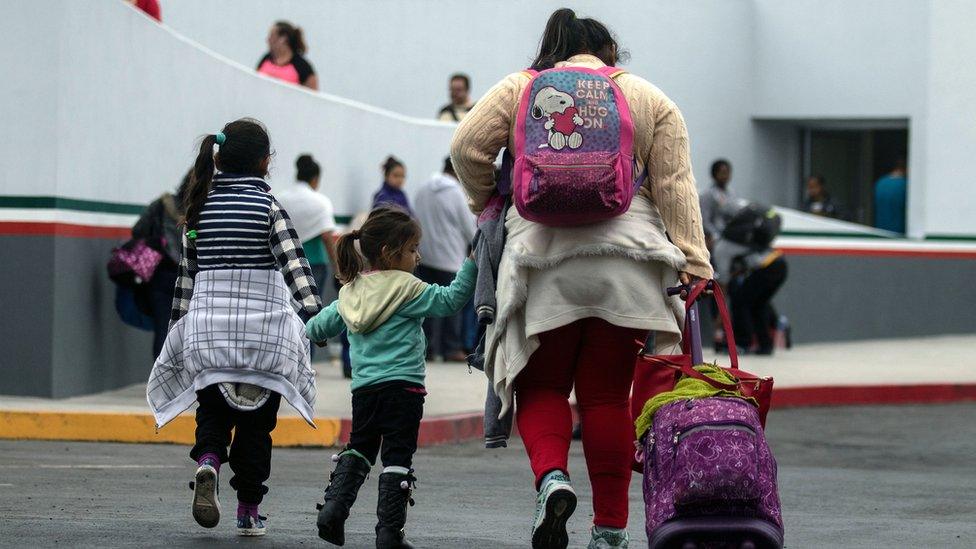
They argue that the new regulation will counter the belief that bringing children into the US is "a passport" to being freed from detention after a short period.
"Today the government has issued a critical rule that will permit the Department of Homeland Security to appropriately hold families together and improve the integrity of the immigration system," said Mr McAleenan.
"This rule allows the federal government to enforce immigration laws as passed by Congress and ensures that all children in US government custody are treated with dignity, respect, and special concern for their particular vulnerability."
The American Civil Liberties Union (ACLU) condemned the policy, saying: "The government should not be jailing kids, and certainly shouldn't be seeking to put more kids in jail for longer."
It comes as the White House seeks to enact a "public charge" rule that would prohibit legal migrants from accessing social services such as food aid. The Trump administration has also recently moved to end asylum protections for most Central American migrants.
What does the new regulation do?
It aims to replace a decades-old court agreement - known as the Flores settlement - that both limited how long the government could hold migrant children in custody and specified the level of care they must receive.
A 2015 legal ruling on this issue specified that children should be held for no more than 20 days.
Last month a Guatemalan mother spoke about the death of her 21-month-old baby daughter in a US detention centre
Under the new rules, the government could send families caught crossing the border illegally to family residential centres for the duration of their immigration cases.
President Trump has repeatedly complained about the "catch and release" of migrant families under the old rules.
Last summer, the Trump administration separated children from their parents as a means of circumventing the Flores settlement.
Justice department says toothbrush and soap 'not required' for migrants
The children were held by the Department of Health and Human Services while the adults were imprisoned while awaiting trial for breaking immigration laws.
In June 2019, a Trump administration lawyer was admonished by federal judges in San Francisco after she argued that the Flores settlement did not require the government to provide detained children with soap or toothbrushes.
What's happening at the border now?
The number of border apprehensions dropped by 28% in June, according to US authorities.
The decline follows a record number of apprehensions between ports of entry in May - the highest in over a decade.


Drops in migrations are typical during the summer months, where temperatures can soar above 32C, but this June saw a sharper decline than previous years.
Trump administration officials have attributed the decrease to new policies with Mexico to curb migration.
- Published23 July 2019
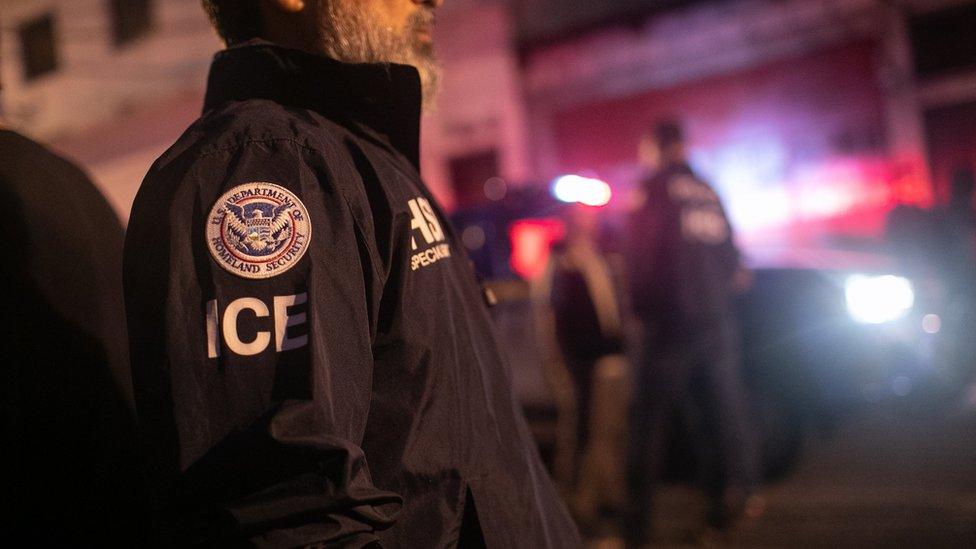
- Published16 July 2019
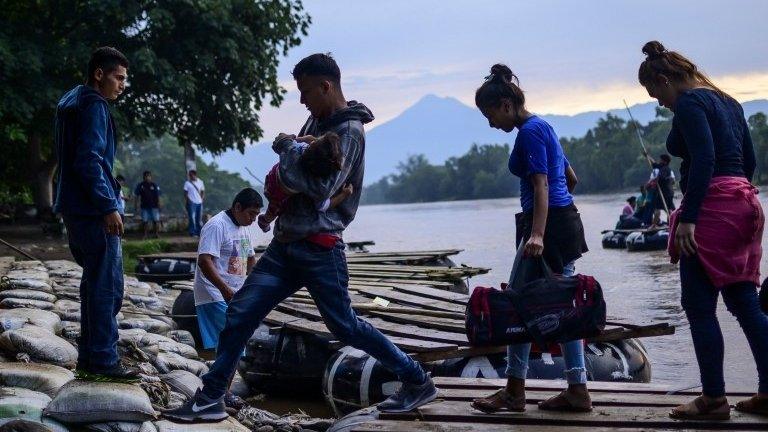
- Published2 July 2019
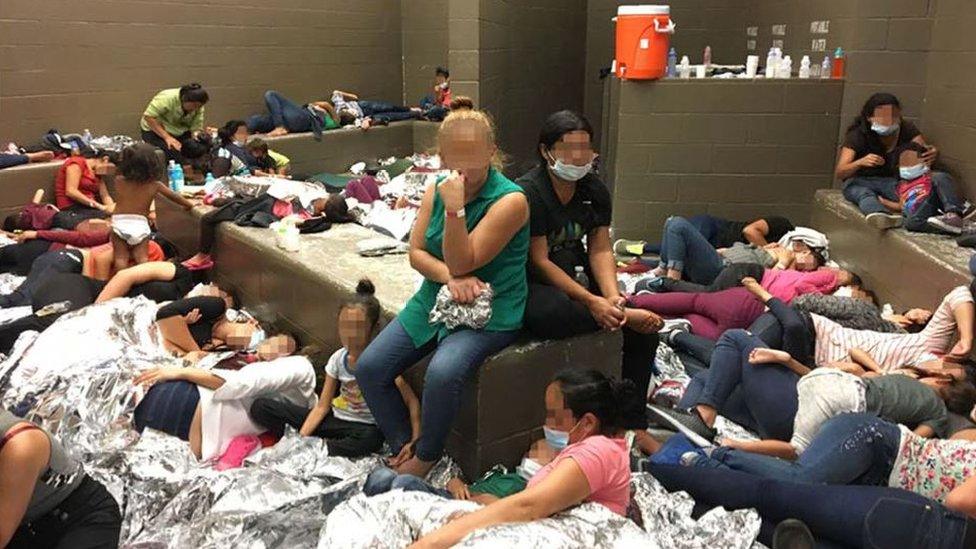
- Published26 February 2019

- Published25 June 2019
